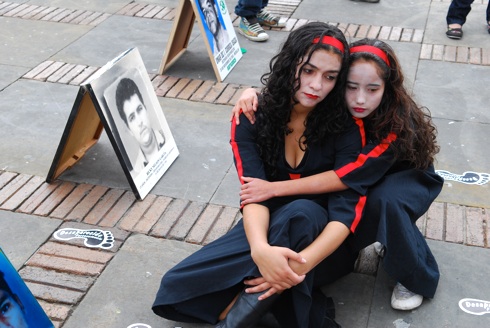Traveling with a balance of fun and meaning
Bogotá, Colombia
A little self-disclosure: I’m suspicious of people who like to party all the time, and I tend not to travel with those who think the apex of a journey involves getting drunk off your rocker in Cancun or even in some Siberian tavern filled with Russian coal miners. If you put me at an all-night outdoor party surrounded by inebriated folks screaming and shaking their bodies, by 3 o’clock I’ll probably be looking up at the moon and wondering what torture-survivor, what orphan, what exhausted refugee or immigrant is seeing that same moon at that very same moment, and I’ll be wishing we could funnel some of this energy and enthusiasm towards helping them.
(Having said that, here’s one more disclosure: I do participate in the occasional party. The energy, the laughter, the act of living in the moment – I like it, not least for how it counters my tendency to live too much within my own thought world.)
Like many of you, I’m attracted to people who strike a balance between “having fun” and “having meaning”. Travel is but one way we can cultivate this balance in our own lives. If in Cambodia, for example, enjoy lounging on the beach in Sihanoukville, but also consider spending hours with your journal at the Killing Fields in Phnom Penh, weaving both places and realities into your Cambodian experience.
And if in Colombia, you won’t be able to help but thoroughly enjoy yourself. However, also consider delving into the tragedy of the country’s internal conflict, which, among other things, has left thousands of “disappeared” people unaccounted for (see photo above).
Or if in Jerusalem, enjoy the nightlife on Ben Yehuda Street or sip a beer at the Jerusalem Hotel, but also consider standing outside the Sbarro’s Pizza a few minutes and remembering the lives lost to a suicide bombing in 2001, or consider calling up a group like the Israeli Committee Against House Demolitions and asking if they can assist you in a tour of nearby Palestinian communities that have been devastated in their own ways.
Chris Hedges, a former New York Times reporter who has covered many a conflict and shares his reflections in a short but powerful book called War is a Force that Gives us Meaning, speaks about this need for balance:
We are tempted to reduce life to a simple search for happiness. Happiness, however, withers if there is no meaning. The other temptation is to disavow the search for happiness in order to be faithful to that which provides meaning. But to live only for meaning–indifferent to all happiness–makes us fanatic, self-righteous, and cold. It leaves us cut off from our own humanity and the humanity of others. We must hope for grace, for our lives to be sustained by moments of meaning and happiness, both equally worthy of human communion.
The examples I’ve used for “meaning” could imply that I think meaning is found primarily in paying attention to violence and injustice, but that isn’t what I want to convey. What I do hope to suggest is that travel, when done well, is much like a life well lived: it is about more than just self-oriented fun.
As always, your own thoughts on the topic are welcome in the comment section.


September 6th, 2010 at 10:24 pm
All excellent points. I find meaning in travel through experiencing as fully as possible the culture of the people at my destination. My experience has been that, by doing so, my awareness of the oneness of all humanity are confirmed, and the remaining differences can be met with greater understanding and acceptance.